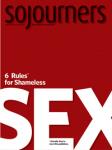ON A DUSTY Iranian highway in 1986, a French-Iranian journalist’s car broke down near a remote village. By the time he left, the horrendous story of a conspiratorial stoning was recorded on a tape in his pocket, and he became the vehicle for the victim’s voice through his eventual novel, The Stoning of Soraya M. The true story of a young woman unjustly accused of infidelity, Freidoune Sahebjam’s book exposed the practice of stoning and the lack of women’s rights in Iran—simultaneously becoming an international best-seller and banned in Iran.
When filmmaker Cyrus Nowrasteh read the book in 1994, the injustice captured his conscience and filmmaker’s sensibility. His movie, also titled The Stoning of Soraya M., looks to be following a similar path to the book—it was the runner-up for the Audience Choice Award at its Toronto International Film Festival debut, and, Nowrasteh says, is already banned in Iran.
The beat-up car of Sahebjam (played by The Passion of the Christ’s Jim Caviezel) sputters to the side of a mountainous highway as the film opens. Below him, a shrouded woman scoops a few stray remains out of the sand and rinses them in the river before burying them. They are all that is left of her niece, Soraya, stoned the day before in the village square. When Zahra (played by Shohreh Aghdashloo) learns that the stranded stranger is a journalist, she convinces him to listen to her story while his car is repaired. “What happened here yesterday was wrong,” she begins. “Start your machine. Voices of women do not matter here. I want you to take my voice with you.”
What unfolds is the disturbing culmination of a male-dominated society fused with the power of mob rule. In the days leading up to her death, Soraya (Mozhan Marnó) finds herself in the precarious position of an inconvenient wife. Married to Ali (Navid Negahban), an unfaithful husband who wants to free himself to marry a 14-year-old village girl, Soraya faces an impossible decision. She can agree to the insulting divorce and escape his abuse, but subject herself and her daughters to poverty and vulnerability. Or she can refuse divorce, retaining her financial lifeline but incurring the ire of a man convinced of his right to have what he wants at any cost. Conspiring with the morally weak mullah to shed his marital obligations, Ali conjures a plot to accuse his wife of adultery.
Ali publicly announces Soraya’s “sin,” making sure the town gossips and a malleable mob are congregated. A private all-male tribunal deliberates, and because Ali has manipulated enough witnesses (all men), he has the proof he needs. The village mayor sums up the appalling injustice: “When a man accuses his wife, she must prove her innocence,” he reminds Soraya matter-of-factly. “On the other hand, if a wife accuses her husband, she must prove his guilt.” Soraya’s guilt is announced by her own father, and the mob is thrust into a frenzy. Boys scatter to collect stones while a few men dig a foreboding pit.
As outlined by Iranian law, Soraya is led to the village square and buried up to her chest. Nowrasteh researched the agonizing details and was committed to doing as much justice to the scene as possible, without sending audiences running out of theaters. “The graphicness is based on bootleg videos of actual stonings, which were terrible and almost impossible to watch,” he told me. “It would have been a disservice to the thousands of women killed by these barbaric stonings to water it down. I felt it needed to be graphic so that people would never forget what a stoning is and what it means.”
The scene is heartbreaking. “It’s not popcorn movie violence,” says Nowrasteh. “It’s truth.” It is the real and ghastly extent to which humanity can disregard the sanctity of another life. Soraya’s final words to her accusers cut to the heart: “How can you do this to me? I am your neighbor, your mother, your daughter, your wife. How can you do this to anybody?”
Though the real Soraya’s story is more than 20 years old, The Stoning is not merely an historical account. Women, and men, in many countries around the world continue to suffer death by stoning, as well as other forms of “honor killing.” Official numbers are difficult to calculate because stoning is so often carried out in secret and determined on a communal level. But combined reports estimate that over the last 15 years, at least 1,000 women have been stoned to death in countries that include Iran, Afghanistan, Pakistan, Nigeria, Sudan, and the United Arab Emirates, where stoning is legal punishment for adultery and homosexuality—even though it’s considered torture by the United Nations. In 2002 Iran’s judiciary declared a moratorium on stoning, but it was never officially taken out of the Iranian Penal Code, and stoning deaths continue to be reported. “The exact numbers don’t matter,” says Nowrasteh. “One is too many.”
“I’m not a politician or an activist. More than anything I want people to come out of this thinking they’ve seen an important movie, and to leave a little more aware of the world, knowing a little bit more about a situation they didn’t know about before,” continues Nowrasteh. Does film have the potential to affect social change? “Unquestionably,” he says. We must, at the very least, listen to and tell the stories of those whose voices need help to be heard.
Kaitlin Barker is editorial assistant at Sojourners.

Got something to say about what you're reading? We value your feedback!